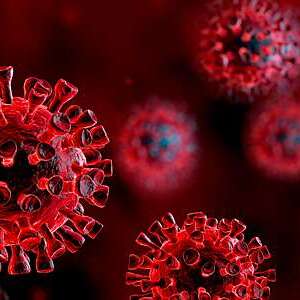The new world: what should we be in order to get into it. Ruben Vardanyan's opinion Ruben

So, the pictures of crises that we used to fear - market crises, financial, corporate, epidemiological, military and other cataclysms - faded at once before the current civilizational upheaval.
it shakes not only the superstructure of world systems, but also its basis. It is not just commodity, financial, technological platforms that are crumbling - the value pillars are shaking. In a matter of days, the world, instead of discussing the smoothing of all sorts of socio-cultural contradictions in the mainstream set by Fukuyama's The End of History, returned to Huntington's Clash of Civilizations - alas, in the literal sense.
Many world analysts have already called globalization a failed political project. Reacting to a dramatic shift in the global context, the World Economic Forum in Davos changed this year's theme from the neutrally friendly "Working Together to Restore Trust" to the alarmist "History at a Tipping Point: Public Policy and Business Strategies." The St. Petersburg International Economic Forum refers us to the "new life" - yes, it has come, it will not work to "repair" the old one.
World trade without restrictions as a cost management tool is no longer possible. For decades, the countries of the world have been moving towards barrier-free trade, the global distribution of labor and other convergent solutions. And suddenly they turned around 180 degrees, in a panic destroying relationships and dismantling systems.
One of the reasons for this reversal is that increasing globalization does not lead to the harmonization and alignment of societies, on the contrary, in many respects, polarization is increasing. After the terrorist attacks of September 11, 2001, states, following the principle of "us or foe", began to impose restrictions on the freedom of movement of people. The global financial crisis of 2008 resulted in tighter regulations that restricted the movement of capital. In a world where “post-truth” and fake news come to the fore thanks to fundamentally new information technologies, you cannot trust the news in your own social network feed or even in the morning issue of your favorite newspaper, and this has recently led to restrictions in the dissemination of information.
The CORONAVIRUS pandemic has only accelerated the reverse processes. Three years ago, we began to enter the “perfect storm”: the supply chains of basic goods and raw materials were torn, the world was gripped by an environmental crisis, and the new coronavirus instantly spread across the planet along with goods transported from one end of the world to another. Social inequality has worsened. Vaccines and therapies for covid-19 have failed to become a global public good, and countries have not learned to cooperate in response to this challenge. This hit millions of people who tried in vain to save their lives and HEALTH.
Read on RBC Pro Pro "Loss of nerves and time":whether employees want to be bosses - Research Pro poll "Everyone thought he was fumbling."How a 'Genius Investor' Chat Ruined 100 Friendswhat it's like to work at Netflix - in 5 pointsFiber: Why It's Important and What Foods You Can Find It in Pro Articles Meditation Changes the Brain.Is it so Research Pro How scammers get passwords from cryptocurrency wallets Articles ProMusic, dancing, tongue twisters: what will help improve brain functionwhat will help improve brain function Articleswhat will help improve brain function ArticlesThis year's events have set in motion irreversible changes with far-reaching implications not only for international politics and the global economy, but also for business strategies. And, of course, for people and communities.
For me, the most comprehensive example of a civilizational crisis, which allows me to imagine the full scale of the upheavals and changes that we are entering, is the period from 1914 to 1945, which included two world wars.
When the First World War began, it seemed to everyone that it would end in a few months. However, circumstances came together that dragged it out for several years. The use of new equipment and weapons has led to the death of millions of people. Labor shortages pushed masses of women into the labor market. Their role in society, the accepted rules of behavior and even women's wardrobe have changed. Changes affected not only the material sphere, but also the spiritual one - ideology, religion, morality. The result of the First World War: four empires disappeared from the world map, and another, the British, ceded the role of hegemon to the United States, in the east of Europe, new nation-states were formed, international organizations appeared, such as the League of Nations. For the next 20 years, the world still continued to be in a fever, and then it again collapsed into the abyss of an even more bloody war.
Today's events are a new wave of global changes that will probably last for decades. The transformations will be painful, and there will not be a single area of our life that they would not affect. The situation is much more dangerous than the fall of any system or military, economic, financial conflicts. Fundamental values were rejected by the world community:
- you are innocent until proven guilty - a basic postulate that has lost its meaning;
- the individual is more important than the population - the pandemic crossed out this maxim;
- inviolability of private property - today this is not the case even in the most advanced countries;
- truthfulness and reliability of information - in the world of fake news it is difficult to distinguish truth from lies.
The middle class as the basis for the stability of any state in the 21st century is not so necessary. Stability can be maintained by algorithms, and therefore society will be divided into a small aristocracy and masses of “ordinary” people who will receive their bread and circuses - VR helmets, soft drugs and a guaranteed income to meet basic needs.
Changes are already noticeable at the household level. Just on February 24, I met with young people and asked who uses cash. No one had cash in their pockets, as well as plastic cards - everyone was used to paying using smartphones. Now many have returned to wallets and cardholders. Such changes will be unimaginably many.
Here is an example of a much more global level. I have worked in the investment banking industry for many years and have done a lot to shape it in RUSSIA. For years, my partners and I have been fighting for a convertible ruble, the free movement of capital, and the building of institutions along European lines. We sought to integrate Russia into the European space while maintaining its own identity. Meanwhile India and CHINA(despite their significant role in the global economy) have always maintained financial constraints. However, none of the BRICS partners sees the absence of a convertible yuan or rupee not only as a disaster, but also as a problem. Other decisions have been made in their civilizational space. This is a matter of choice: either we adhere to the integration model and in this case we cannot make separation decisions, or we find ourselves on a different path.
What to do and how to properly raise this issue
The British philosopher, mathematician and Nobel laureate Bertrand Russell wrote that "the hardest thing in life is to understand which bridge to cross and which to burn." Discussions of a new world order are like a pendulum with a gigantic amplitude - from deglobalization to a request for a new solidarity. We will understand these polar positions better if we decompose them on a time scale.
We need what I think are short, medium and long term scenarios. They are completely different, but you need to work with everyone at the same time. In the short term, it is important to restore supply chains and balance financial systems, in other words, to respond to the urgent needs of people and businesses. On an average time horizon, we determine tactics and mobilize resources and partners, and in the long run we work with the main competitive factor - technological development.
Most countries of the world still prefer to wait out the storm in their compartment, battening it down tightly. Global manufacturers in all major markets are adjusting their business structure - not only in Russia and Europe, but also in Africa and Latin America. And this is an understandable short-term scenario that politicians have launched in a state of emergency.
Those who are able to think ahead speak of new global trade coalitions and a new contour of global trust. In civilizational conflicts, the role of small countries at the crossroads of civilizations is growing. By virtue of their size and historical background, they can be at the forefront of finding innovative responses to the challenges of today and contribute to the depolarization of the world.
Thus, in Armenia, despite the severe upheavals of recent years, new opportunities are emerging. Thanks to its historical role as a bridge between civilizations - Sunni, Shiite, Orthodox and European - as well as the experience of mediation in working with sanctioned countries, Armenia has a chance to become a regional hub in the field of technology, education and healthcare. My partners and I initiated the Move to Armenia movement to create a stimulating environment and comfortable conditions for the best IT and creative professionals who have come to the country in recent months. We already have two "unicorns", we will try to grow twenty more. Our other projects will also contribute to this.
Who will create trust
The problem cannot be solved at the level of consciousness at which it arose, said Albert Einstein. Now this is especially important to remember.
Often we perceive the world and the persons acting in it according to their functions. Conflict between countries? This is for politicians. About money? This is for business. About values - to cultural figures. Such simplification turns us into a squirrel in a wheel: there are many efforts, and the movement is conditional, since labels are conditional.
Western civilization seems to have done everything to undermine trust both in itself and within itself at all levels - in the system, in institutions, in communities, in people. A different circle of people should work with new civilizational paradigms. Humanity needs moral leaders, people from different fields of activity who are ready to discuss key challenges together and look for answers to them. Systemic chaos requires going beyond the usual “tunnel” of thinking for each individual stratum in an attempt to see the whole picture. It is these people who should form a new framework of trust - we see its crisis all over the world, the demand for change is global. And here the role of people from business is enormous, not as a sphere of money, but as a sphere of experience.
For me, this is important as for a person who has been building relationships of trust for 30 years, not only between those who had money and who needed it, not only between international investors and Russian companies and vice versa, but also in political upheavals , in Karabakh. To the question "who am I" I often answer that I am the chief connector. I think that the role of an interpreter (not even an interpreter, but a negotiator) is unique. I see my mission in this as an Armenian, as a part of the people who have played this role throughout their history. Living at the crossroads of civilization, Armenians have been learning for centuries to connect the incompatible, to create trade networks that cover the whole world, and to involve representatives of different cultures in productive interaction.
What and with whom you need to connect
Three principles that our partners and I laid at the heart of our activities back at Troika Dialog (by the way, this name also reflects the idea of mediation in dialogue), and later at the Skolkovo business school, in the Noôdome and Atlanta communities , in hundreds of our projects in Armenia: trust, long-term planning, institutional approach. They are still immutable, although so far they exist only in individual communities. Without trust, there is no long-term policy, and we are doomed to short-term scenarios. Without trust, there are no institutions, there is manual control and primitive atomization of interests.
I am sure that the role of communities in building a better future is enormous. Habitual supports - family, clan, community, religion and ideology, national and corporate identity - are eroded, and our personal cosmos is an environment of people that calibrates, preserves and develops values. I do not rule out that in our projects there will be such a level of trust that even the legal registration of transactions will be a mere formality, the role of the participants' reputation will be so great. Only in such an environment will we create a truly new world, and will not rush about on the ruins of the old. If the whole country turns out to be a community, then it will be the best country in the world. It doesn't matter if the currency is convertible or not.
Read together with it:
- A tanker carrying Russian oil bound for India has been turned back after US sanctions.A vessel carrying 750,000 barrels of oil , which departed Primorsk on October 20, turned back a week after the US imposed sanctions on Rosneft and Lukoil. it was scheduled to sail to India.A tanker carrying Russian oil bound for India has changed course and is now drifting in the Baltic Sea, reportsBLOOMBERG, citing data from the Kpler and Vortexa vessel tracking platforms, clarifies that the situ...






























































